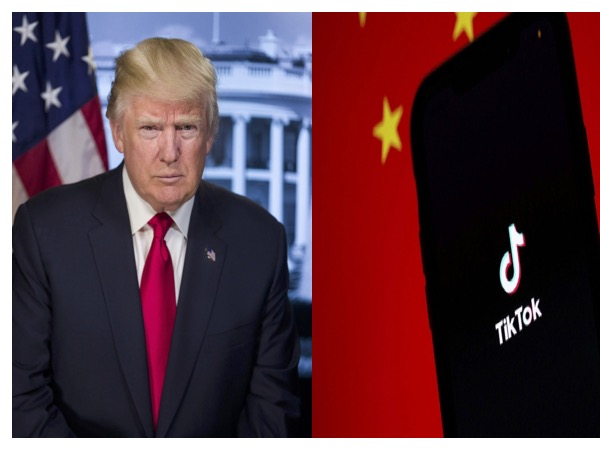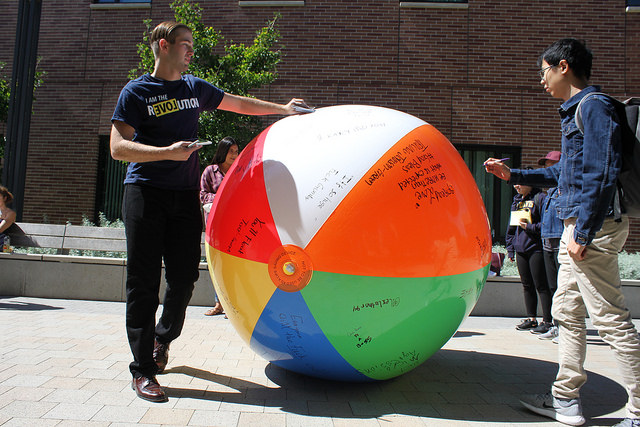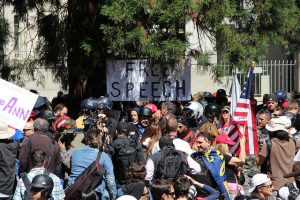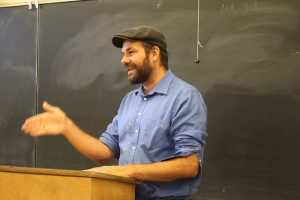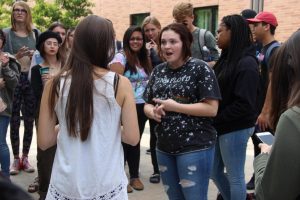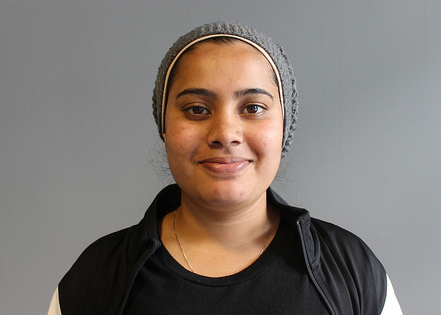Free speech at DVC not exercised as often as it could be
A member of Young Americans for Liberty holds pamphlets advertising the organization while a student writes on the “Free Speech” ball in the Commons on Sept. 18, 2017.
September 25, 2017
Just because you’re a student, doesn’t mean you don’t have freedom of speech. But your exercise of that right or any other right has to be weighed against its societal impact,” said Diablo Valley College political science professor Scott MacDougall.
DVC is not facing the same problems as the University of California, Berkeley, which has in the last year seen many violent protests over free speech, most notably in February when conservative commentator Milo Yiannopoulos was scheduled to speak.
UC Berkeley ended up cancelling Yiannopoulos’ speech just two hours before his scheduled time due to violent protests that broke out on campus, causing $100,000 worth of damage, according to CNN.
After the cancellation of Yiannopolos’ speech, Berkeley was set to host conservative commentator Ann Coulter, but her speech was also cancelled after campus police said that they could not guarantee the safety of people, the New York Times reported.
The cancellation of the speech resulted in a “Pro-Trump free speech” rally on April 27, according to Berkeleyside.
“Schools have a right to restrain your right to free speech if it gets in the way of the learning process, because the purpose of a school is learning,” said MacDougall.
The court case of Tinker v. Des Moines ensured that students retained their rights to free speech after students in Des Moines, Iowa were suspended for silently protesting the Vietnam War by wearing black armbands to school.
While UC Berkeley argues over free speech and whether there is free speech on campus, DVC students agree that they have the right to free speech on campus, but some students say there is under-representation.
“I believe DVC is a safe place to express our views on campus,” said DVC student Robin Stewart.
Debadrita Bhattacharya is president of Students for America, a non-partisan club at DVC which was created last semester as a way for students to be able to voice their opinions without fear, according to the club profile.
Bhattacharya said that she does feel like there is a lot of diversity on campus and that it isn’t just political, it is also social and that she feels “some students don’t want to voice their opinion because they don’t want to feel their opinion is not popular.”
“I think universities should be places where we have those open discussions. It should be those places that we throw out those ideas,” said DVC student Meredith Mountjoy.
Mountjoy is a part of the Libertarian organization Young Americans for Liberty, a continuation of Students for Ron Paul, which was started during the former congressman’s 2008 presidential campaign. She said that, while she feels like there is free speech on the DVC campus, some thoughts and ideas are underrepresented.
“Young Americans for Liberty represents a point of view that I think is not represented on college campuses anymore,” said Mountjoy.
Mountjoy said that while the club still isn’t official yet because they are still looking for an adviser, they have had meetings and are looking to host Libertarian speakers and other events on campus soon.
Robin Stewart, meanwhile, helped create a new DVC club called Redefining Masculinity, which received complaints before the club even held its first meeting. The goal of the club, according to Stewart, is help create “more self-aware, honorable, attractive, emotionally balanced, ambitious, charitable, and chivalrous men.” Stewart said that is is understandable that there might be misinterpretations about the club and that complaints should act as a path to growth.
“I want this disagreement to happen, I want to have this conversation,” said Stewart.
Rajiv Iyengar, of DVC’s Model United Nations, a political debate team which recreates the United Nations, holding political debates to solve real word issues, according to their Facebook.
Iyengar says that schools “shouldn’t actively say, ‘hey, we need more of these voices and these voices,'” but instead say that people can “respectfully represent their views and give rational arguments for why they believe their views.”
“When we use it (political correctness) to prevent people from speaking, it’s definitely bad for the conversation,” said Mountjoy.
This feature represents part one of the Inquirer’s multipart series covering free speech on public campuses.












